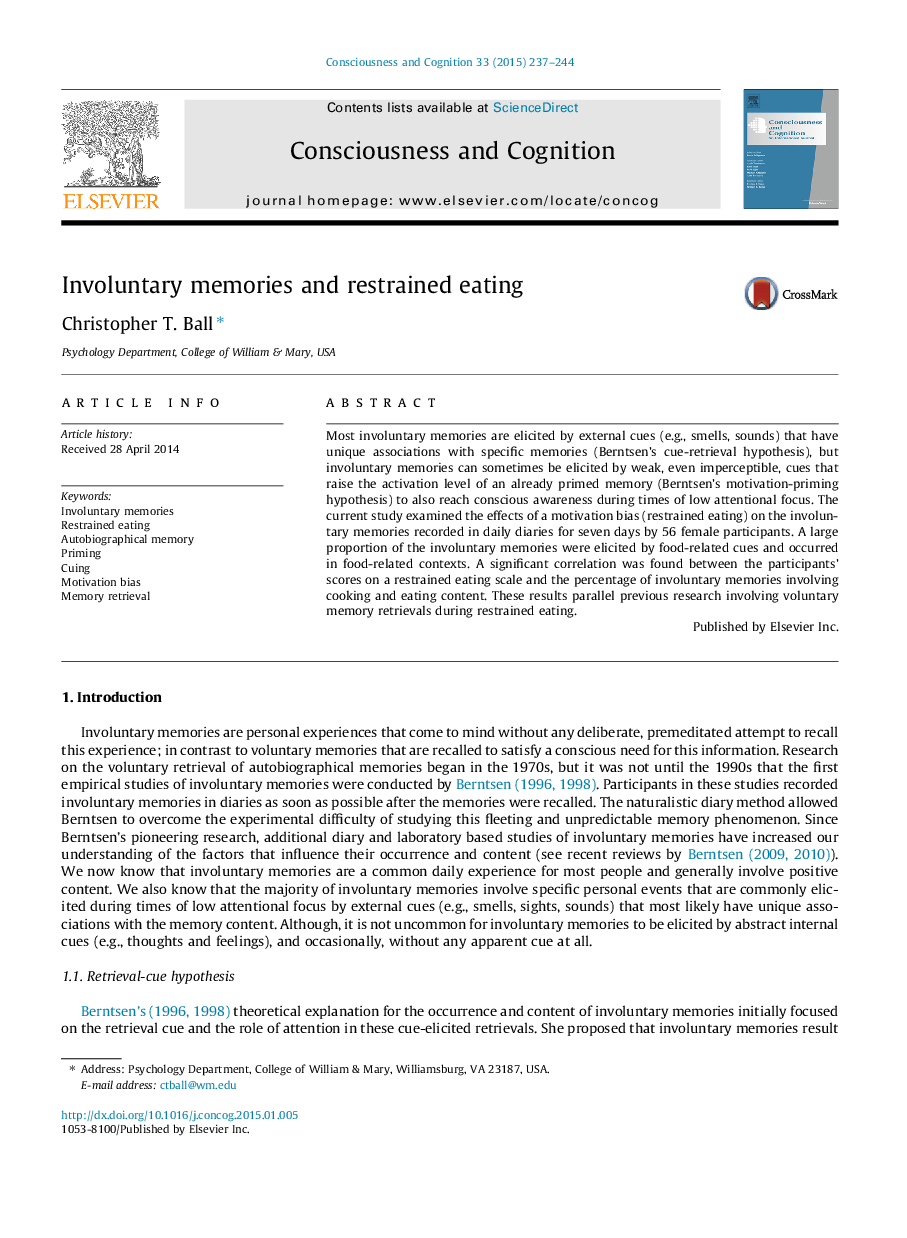| Article ID | Journal | Published Year | Pages | File Type |
|---|---|---|---|---|
| 7289532 | Consciousness and Cognition | 2015 | 8 Pages |
Abstract
Most involuntary memories are elicited by external cues (e.g., smells, sounds) that have unique associations with specific memories (Berntsen's cue-retrieval hypothesis), but involuntary memories can sometimes be elicited by weak, even imperceptible, cues that raise the activation level of an already primed memory (Berntsen's motivation-priming hypothesis) to also reach conscious awareness during times of low attentional focus. The current study examined the effects of a motivation bias (restrained eating) on the involuntary memories recorded in daily diaries for seven days by 56 female participants. A large proportion of the involuntary memories were elicited by food-related cues and occurred in food-related contexts. A significant correlation was found between the participants' scores on a restrained eating scale and the percentage of involuntary memories involving cooking and eating content. These results parallel previous research involving voluntary memory retrievals during restrained eating.
Related Topics
Life Sciences
Neuroscience
Cognitive Neuroscience
Authors
Christopher T. Ball,
